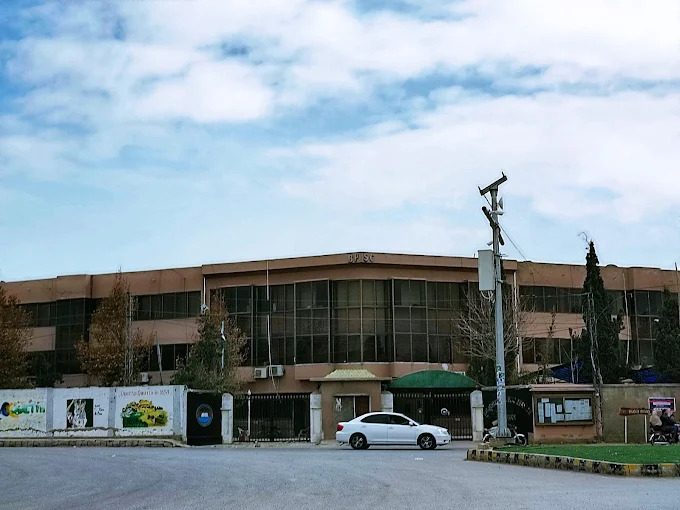Why Balochistan Must Protect Its Only Merit-Based Institution
Balochistan rarely makes headlines and when it does, the headlines are often sobering and heart-wrenching. Just last week, a video of an alleged honour killing went viral from Quetta, showing a woman being shot in front of a gang of men. In the same week, another piece of news surfaced quietly: the possible nomination of the next Chairman of Balochistan Public Service Commission chairman (BPSC).
According to the unofficial news, the most likely nominee is the current Inspector General (IG) of Balochistan Police: Moazzam Jan Ansari. As Ansari approaches his retirement that is due in few days, there is a growing speculation that he will be appointed to this prestigious position. However, this rumoured nomination has sparked criticism and concern among the youth and civil society. Many are objecting this nomination with fear that the nomination will politicise the only non-democratic institution of the province.
BPSC Rules for Appointment of Chairman:
Balochistan Public Service Commission operates under the Balochistan Public Service Commission Act 1989. According to the Act, the Chairman and other members of the Commission are appointed by the Governor—according to the consultation of the Chief Minister. The Act also specifies eligibility criteria: the Chairman must not be under the age of 55. The term of office for both Chairman and other members is five years and Chairman, once retirement from the office, shall not be reappointed.
Selection Procedure of Chairman in other Provinces: A Comparative Analysis
In Punjab, the Chairman of the Punjab Public Service Commission (PPSC) is selected through a semi-transparent and structured process. The Governor appoints the Chairman on the advice of Chief Minister. Before the nomination, a Search Committee is constituted including the Chief Secretary, academic experts, and retired officers. However, the Committee plays an important role. It evaluates and shortlists suitable candidates. The Committee makes sure the selection is based on merit not on favoritism. This process helps build a system which people can trust.
In the same vein, Khyber Pakhtunkhwa (KPK) has adopted a similar approach with even more structure and inclusivity built into its process. KPK distinguishes itself by mandating a broader and more diverse Search Committee. The Committee includes the Chief Secretary, Vice Chancellors, legislators, and retired bureaucrats. KPK also mandates the inclusion of women in the committee—ensuring gender diversity and inclusive decision in the appointment process.
In contrast, the appointment process in Balochistan lacks transparency, remains less institutionalized, and centralized. Although many of the provisions are same, Balochistan lacks a formal search committee or public advertisement mechanism for the appointment of Chairman. All powers in the process are centralized and the Chief Minister plays a decisive role in nominating a candidate, who is then appointed by the Governor. This centralization of power in nomination creates limited scrutiny and appointments are made through direct selection rather than competitive and merit-based vetting as present in other provinces.
Drawbacks of this Process:
The drawback of Balochistan’s process are clear. First, it politicizes appointments by concentrating discretionary power of nomination in the hands of the Chief Minister. CM can easily pick any person, without the process of competitive vetting, and appoint him/her. Second, the process lacks institutional frameworks like Search Committees which are important for transparency. Third, the absence of competitive vetting undermines merit-based appointments discouraging qualified candidates—this in turn breeds distrust among aspirants.
What are the implications of the recent nomination?
If, as rumours suggest, the incumbent IG is appointed as the Chairman of BPSC immediately after his retirement, this will set a troubling precedent. First, it may discourage thousands of young aspirants who will believe that political patronage will govern recruitment. Second, it raises concern about neutrality. A recently retired police officer may carry political afflictions that will affect the perceived impartiality of BPSC. Third, such appointments risk eroding the credibility of future exams and the overall recruitment process through BPSC. And let’s be honest, once institutional trust is compromised it becomes hard to win it back.
Much Needed Reforms:
There are several critical reforms needed for BPSC. First, BPSC must have a proper infrastructure including examination halls accommodating thousands of candidates at once. Currently, the Commission lacks adequate facilities and heavily relies on makeshift arrangements. In this makeshift arrangement, booking plastic chairs and tents through tenders, BPSC waits for summer vacations of schools or colleges to conduct major exams like Tehsildar and PCS. If these educational institutions are not available then stadiums. These shortcomings have frequently delayed timely examinations.
Second, the Commission must publish the marks of candidates who qualify the final viva. This act will bring more transparency in the recruitment process. The Federal Public Service Commission (FPSC), for example, shares the digital marksheets of passed candidates once candidates are appointed in respective departments.
Third, BPSC must maintain a waiting list for competitive exams like PCS. Recently, BPSC shared the final allocation list of PCS candidates. However, many candidates, in the initial phase, vacated their posts in order to pursue CSS Special seats. Unfortunately, those candidates who had qualified the written exam were not offered the vacant seats—because BPSC rules do not include a waiting list provision for PCS.
Fourth, BPSC should introduce an online system of obtaining Detailed Marks Certificate (DMC). At present, candidates who fails either written exam or interview, after paying a fee of three hundred rupees, must visit the BPSC office in person and apply for their DMC. Instead of this process, BPSC should introduce an online system through their website where candidates after paying the fees can download the marksheet.
To conclude, the government of Balochistan should ensure a transparent and merit-based appointment. The role must not be used to reward political allies or affiliations for short-term political considerations. Any person who has recently held an office might politicise Commission. The government must decentralize the powers only vested to CM and give the powers of nomination to any select committee as according to other sister provinces—making the selection process more participatory, accountable, and credible in the eyes of the public. Similarly, the much needed reforms must be adopted to ensure more transparency in BPSC.
About the author:

Jahanzaib Mengal
SIT Hub AlumnusJahanzaib holds a degree in International Relations from Quaid-i-Azam University, Islamabad. His areas of interest include international politics, the Indian Ocean region, and national security.













